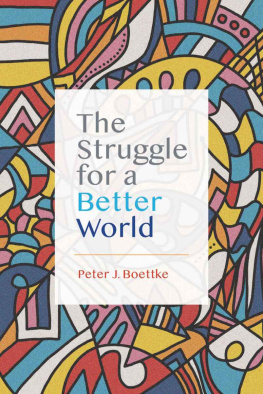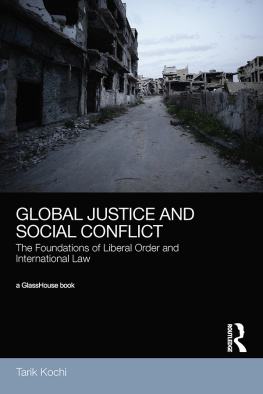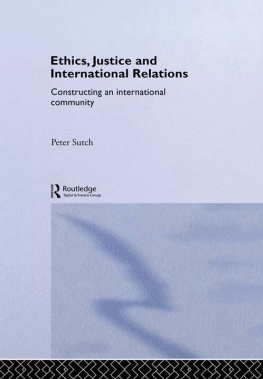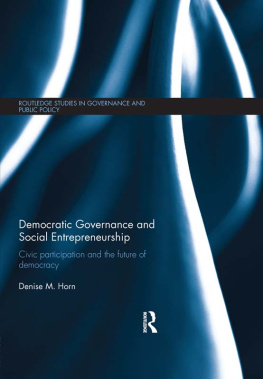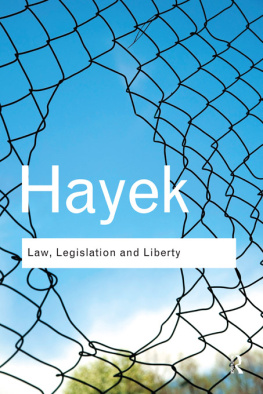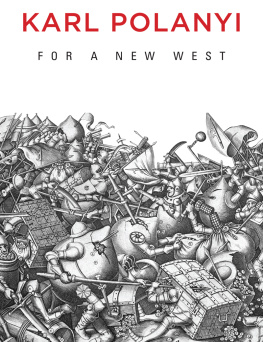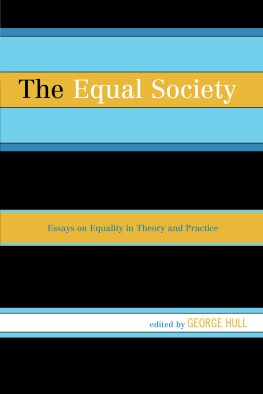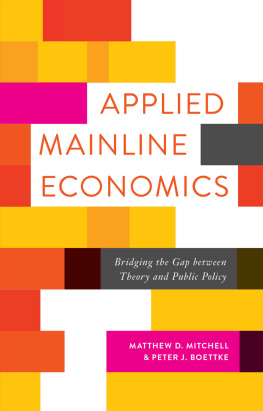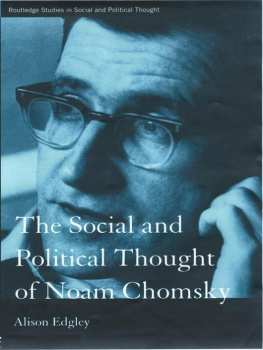The Struggle for a Better World
Advanced Studies in Political Economy
Series Editors: Virgil Henry Storr and Stefanie Haeffele
The Advanced Studies in Political Economy series consists of republished as well as newly commissioned work that seeks to understand the underpinnings of a free society through the foundations of the Austrian, Virginia, and Bloomington schools of political economy. Through this series, the Mercatus Center at George Mason University aims to further the exploration of and discussion on the dynamics of social change by making this research available to students and scholars.
Nona Martin Storr, Emily Chamlee-Wright, and Virgil Henry Storr, How We Came Back: Voices from Post-Katrina New Orleans
Don Lavoie, Rivalry and Central Planning: The Socialist Calculation Debate Reconsidered
Don Lavoie, National Economic Planning: What Is Left?
Peter J. Boettke, Stefanie Haeffele, and Virgil Henry Storr, eds., Mainline Economics: Six Nobel Lectures in the Tradition of Adam Smith
Matthew D. Mitchell and Peter J. Boettke, Applied Mainline Economics: Bridging the Gap between Theory and Public Policy
Jack High, ed., Humane Economics: Essays in Honor of Don Lavoie
Edward Stringham, ed., Anarchy, State and Public Choice
Peter J. Boettke and David L. Prychitko, eds., The Market Process: Essays in Contemporary Austrian Economics
Richard E. Wagner, To Promote the General Welfare: Market Processes vs. Political Transfers
Donald J. Boudreaux and Roger Meiners, eds., The Legacy of Bruce Yandle
Ludwig M. Lachmann, The Market as an Economic Process
Peter J. Boettke and Alain Marciano, eds., The Soul of Classical Political Economy: James M. Buchanan from the Archives
Peter J. Boettke, The Struggle for a Better World
The
Struggle
for a
Better World
Peter J. Boettke
Arlington, Virginia
About the Mercatus Center
The Mercatus Center at George Mason University is the worlds premier university source for market-oriented ideasbridging the gap between academic ideas and real-world problems.
A university-based research center, the Mercatus Center advances knowledge about how markets work to improve peoples lives by training graduate students, conducting research, and applying economics to offer solutions to societys most pressing problems.
Our mission is to generate knowledge and understanding of the institutions that affect the freedom to prosper, and to find sustainable solutions that overcome the barriers preventing individuals from living free, prosperous, and peaceful lives.
Founded in 1980, the Mercatus Center is located on George Mason Universitys Arlington and Fairfax campuses.
2021 by Peter J. Boettke and the Mercatus Center at George Mason University.
All rights reserved. Printed in the United States of America.
978-1-942951-86-5 (hardcover)
978-1-942951-87-2 (paper)
978-1-942951-88-9 (electronic)
Mercatus Center at George Mason University
3434 Washington Blvd., 4th Floor
Arlington, VA 22201
www.mercatus.org
703-993-4930
Cover design: Jessica Hogenson
Editorial and production: Publications Professionals LLC
Library of Congress Cataloging-in-Publication data are available for this publication.
To Dave Prychitko, Steve Horwitz, Emily Chamlee-Wright, and Virgil Storr
My fellow students of our beloved teacher Don Lavoie, who have provided, and continue to provide, much needed assistance in the struggle. May our efforts continue to honor the memory of Don and the path he prepared us to follow.
The power of abstract ideas rests largely on the very fact that they are not consciously held as theories but are treated by most people as self-evident truths which act as tacit presuppositions. That this dominant power of ideas is so rarely admitted is largely due to the oversimplified manner in which it is often asserted, suggesting that some great mind had the power of impressing on succeeding generations their particular conceptions. But which ideas will dominate, mostly without people ever being aware of them, is, of course, determined by a slow and immensely intricate process which can rarely reconstruct in outline even in retrospect. It is certainly humbling to have to admit that our present decisions are determined by what happened long ago in a remote specialty without the general public ever knowing about it, and without those who first formulated the new conception being aware of what would be its consequences, particularly when it was not a discovery of new facts but a general philosophical conception which later affected particular decisions. These opinions not only the men in the street, but also the experts in the particular fields accept unreflectingly and in general simply because they happen to be modern.
F. A. Hayek
Law, Legislation and Liberty
Contents
Acknowledgments
In pursuing a career as a scholar, one accumulates many debts to the teachers who taught, to the family members who supported, to the colleagues who collaborated, and to unknown scholars past, present, and future who were sources of inspiration. I consider myself very fortunate; I had professors who changed my life and gave me a mission and ample intellectual resources to start me on my quest. I have a lovely and willing life partner in Rosemary, who since we were teenagers has been my best friend and strongest supporter, as well as the love of my life. And I had amazing classmates in graduate school, and then wonderful colleagues and students at every stop along the way in my career. And finally, I have my friends through the ages that I am in constant dialogue with and learning from in the form of books and articles that occupy my bookshelves, pile up on my desk and office floor, and tend to spread throughout the houseor more recently, eat up storage space on various electronic devices. Books, in particular, have played a big part in Rosemarys and my life together, as she spent the last decade of her career in education as a school librarian and is an avid reader.
Reading, writing, and teaching has occupied my professional life for close to 40 years. It has enabled me to travel throughout the world from the edge of Patagonia in Argentina to the cold of winter in Moscow, Russia, and almost everywhere in between.
The essays in this collection are in most instances invited lectures that I was honored to have given for learned societies and organizations. Full attribution to the organizer, the date, and subsequent publication details may be found on the first page of each essay. I gratefully acknowledge these opportunities, and am especially grateful for the permission to include in this volume these lectures from Atlas Network, Liberty Fund, New Zealand Business Roundtable, Constitutional Political Economy , The Independent Review , The Insider , the Journal of Private Enterprise , Policy: A Journal of Public Policy and Ideas , the Review of Austrian Economics, and the Southern Economic Journal .
I have been closely associated with the following organizations throughout my career: the Association of Private Enterprise Education (APEE), the Mont Pelerin Society (MPS), the Society for the Development of Austrian Economics (SDAE), and the Southern Economic Association (SEA). I have consistently attended the meetings and served in various capacities for each of these organizations, and have had the honor of serving as president of each of these organizations as well (APEE, 20132014; MPS, 20162018; SDAE, 20002001; SEA, 20152017).

